Books of 2015
Below you’ll find brief reviews of every book that I read in 2015. I included anything that I read at least half of, so a number of things that I picked up and quickly decided not to read are not included on this list.
Like last year, I’m dividing the list into separate categories for fiction and non-fiction. I’ve also added a new division where each category is separated out into sub-lists of books I enjoyed vs those I didn’t.
And now . . . books!
Fiction
ENJOYED
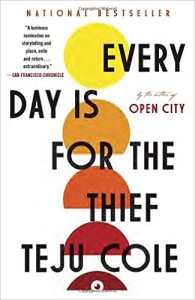
I’m a big fan of Teju Cole’s non-fiction writing, but was disappointed with his novel Open City. Every Day is For The Thief was much more enjoyable. It’s a not-autobiographical-wink-wink novella about a Nigerian man who lives in New York and returns to Nigeria to visit family. I enjoyed it primarily because it was a look into a place and a culture that I don’t normally get to see from a person with a caring, sympathetic view of people. Despite being written by a man who grew up in Nigeria, it is still written essentially from the viewpoint of a liberal Westerner, which I found a bit unusual in places. A pretty short read, well worth it if you’re interested in knowing more about what it’s like to live in Nigeria.
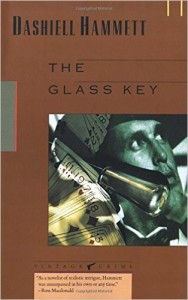
I’m a big fan of noir-ish mysteries, and Hammett is virtually the progenitor of the genre, having written the seminal The Maltese Falcon. The Glass Key is not about a private eye, though, but about a gangster trying to clear his boss’s name in a murder case. Ostensibly a murder mystery, it’s really an indictment of politics in Hammett’s day; an examination of the corruption among police, state politicians, and mass media. I did enjoy it, but not as much as The Maltese Falcon. The Glass Key certainly serves as a striking example of Raymond Chandler’s claim that “Hammett gave murder back to the kind of people that commit it for reasons, not just to provide a corpse.” (This is in opposition to British writers like Agatha Christie, who Chandler was not fond of.)
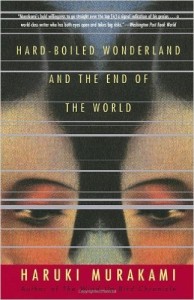
Tells two stories that eventually intertwine in alternate chapters. Odd-numbered chapters are a kind of sci-fi noir, while even-numbered chapters are a dark fantasy. I enjoyed this novel a lot in the early chapters, but my enthusiasm waned as the story went on. Hard-Boiled Wonderland has the same problem that many mysteries has, which is that it’s much easier to set up an intriguing mystery than it is to resolve it satisfactorily. The latter parts of this novel are heavily weighed-down with expository dialogue, and I thought it would have been better if the precise workings of many of the novel’s secrets were left unexplained.
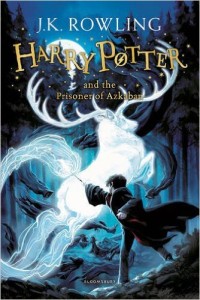
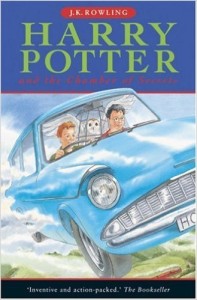
I’m not really sure what to say about Harry Potter, since odds are relatively good that you’ve read them if you have the interest. As a late first-time reader of these stories, I am quite enjoying them. The plot construction is frequently quite skillful (even though I did guess one of the big reveals in the 3rd novel well in advance), and the characters are interesting and well-drawn. It’s good.
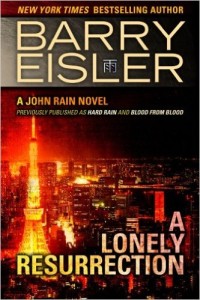
Eisler is a former CIA agent, and though the novel is about an assassin rather than a spy, it is essentially a spy novel. Protaganist John Rain returns for his second novel in A Lonely Resurrection, a book I thought improved quite a bit on the first Rain thriller. Eisler’s eye for the details of spycraft is impeccable, which is the primary thing that keeps these stories moving. A relatively modern take on the spy novel that’s less about nation-states and more about surveillance and corruption. Easy to recommend if you’re into spy stories.
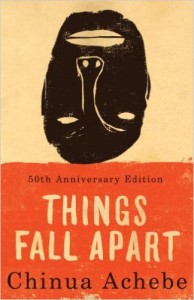
Perhaps the most well-known African novel in the English-speaking world, this is the tale of Okonkwo, a village “strong man” in pre-colonial Nigeria. The first part of the story paints a picture of life in Okonkwo’s village prior to the arrival of Christian missionaries, while the second part deals with the ways Okonkwo’s culture is upended by European colonialism. The early parts of this novel in particular were interesting as an examination of a culture, place, and time that I know little about, but the story is not especially well plotted.
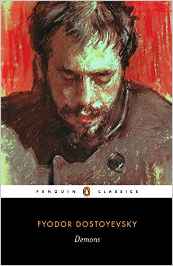
I’ve read Demons before (indeed, I’ve read all of Dostoevsky’s major novels), and I quite enjoyed it the first time around. I decided to go back and read it again during a lull in the year when I was having trouble finding novels that I felt like sticking with. Demons is the tale of a Russian city in the 19th century, centering around the intertwining tales of the families of a rich widower and the academic who serves as her patron. The heart of the story is about a revolutionary anarchist cell lead by Pyotr, the academic’s son, and Nikolay, the widower’s son. The novel essentially predicts the rise of Stalinism, but not directly. Like most of Dostoevsky’s novels, it’s not about ideas per se so much as it’s about the kinds of people who have them. Demons is too long in places, but as an examination of the psychology of the nihilist revolutionary it’s enthralling.
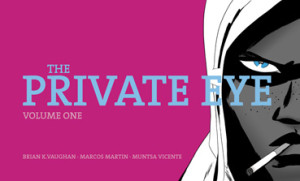
The Private Eye is actually a comic book series which I read as in two volumes as a graphic novel, developed to be viewed on tablets and available in a pay-what-you-want format directly from the creators. The setting of the story is what initially drew me in: it’s about a near-future world where “the cloud” has burst, releasing the entire world’s personal lives for everyone to pore over (e-mails, web search history, etc.) In this future, privacy has been elevated to be considered one of the most important democratic rights, and most people go out in public in masks and costumes so they can’t be seen or tracked. That’s the setting. The story itself is noir-ish tale about a private eye. It begins as a murder mystery, but eventually turns into something much larger. Vaughan’s writing is excellent, and he has a mastery of pacing that makes the whole thing breeze by. Even if you don’t normally read comics (I don’t), this is well worth reading.
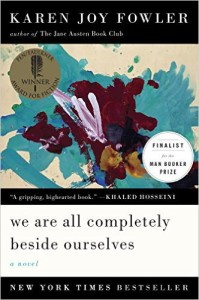
I think I’d say this was my favourite novel that I read this year. We Are All Completely Beside Ourselves is about a woman named Rosemary whose father was a psychologist, and he raised her as the twin of a chimpanzee until both were 5 years old. The bulk of the story takes place when Rosemary is in college, and deals with the fact that she’s never really adjusted to a world in which humans and animals are treated so incredibly differently. For Rosemary and her brother Lowell, the chimp is a member of their family, and its removal during their childhood is seen as a betrayal by their parents. Despite what it may sound like, the novel is not especially sentimental about non-humans so much as it doesn’t treat humans with a unique moral reverence. Fowler does a great job of capturing the life of a teenager in the 90s (I was one too) in a novel that’s thought-provoking but also often fairly humorous.
DID NOT ENJOY
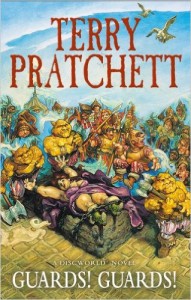
I don’t know why I don’t enjoy Terry Pratchett novels. It seems like I ought to like them. They’re funny, and he’s clearly a gifted writer, with excellent prose. But I’ve tried to read a couple of them, and they just don’t work for me. This one’s a parody of the hero’s journey, and even though I didn’t like it I sort of feel like it’s worth recommending if the idea of a parody of the hero’s journey sounds like something you’d be into.
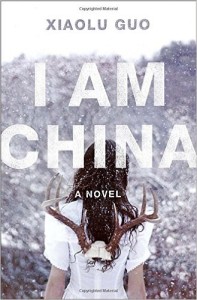
A Chinese punk rocker named Jian has written a series of letters to the love of his life. The letters are discovered by an English book publisher, which gives them to a translator named Iona with the request that she turn them into a book. As it happens, Jian has fled China and is stuck in limbo in the British immigration system. The story alternates between Jian’s current-day crises and Iona’s day job of translating his letters. The premise sounded like it had promise, but neither the characters nor the plot seemed to be developing, so I gave up about half-way through.
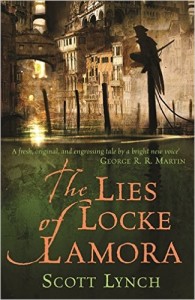
Another novel that links two narratives, this one alternates between the childhood and adult years of an orphan-turned-thief named Locke Lamora. It takes place in a vaguely-magical set of city-states reminiscent of Renaissance Italy, and seems to be a kind of fantasy take on gangster films like The Godfather or Goodfellas. I’d seen people raving about this book for a while, so I decided to check it out, but I was quite disappointed. It’s filled with long-winded, extraneous description and it often seems to be mean-spirited for the sake of it. There’s no real psychology to anything or anyone, the characters and world are just kind of grim. Too drawn out, too unredeeming. Gave up about half-way through.
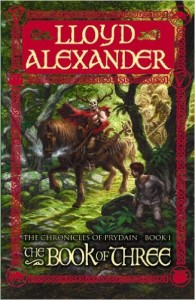
I picked this up because a non-fiction writer whose work I greatly enjoy (David Roberts, currently at Vox) said it was better than Harry Potter. It’s really not. It’s a children’s fantasy, but it’s incredibly thin on characterisation and plotting. Nothing happens and I didn’t care about any of the characters. Altogether drab and unremarkable.
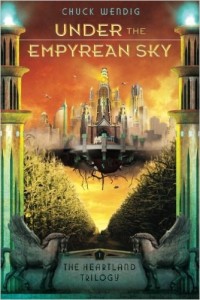
This one’s a young-adult novel about a teenager named Cael McAvoy and the small band of friends he lives with under the rule of an evil empire. The aristocrats who run the U.S. in the story all live on floating islands, while poor people live in a desolate land below where nothing will grow except a kind of violent, mutated corn. Nothing about the world really makes sense; it felt like the author came up with the what of the setting but didn’t bother with the why. It also ends without really resolving anything, even minor plot threads. Really feels like it just kind of stopped because it was planned as a trilogy and it had gone on long enough.
Non-Fiction
ENJOYED
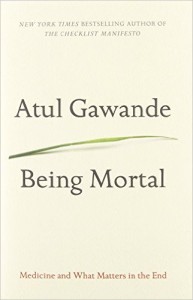
I read a lot of great non-fiction this year, but if I had to pick one book that was the best (and I do believe that by law I am required to do so), I’d say it was Being Mortal. Gawande, an oncologist (cancer doctor), examines the difference between quality and quantity of life, in particular as they relate to people with terminal illnesses. Modern medicine has typically focused on increasing the lifespan of dying patients as long as possible, even if it causes more pain and suffering. Gawande argues that what really matters to people who are dying is not extension of life, but maintaining independence and finding value in whatever time they have left. But to do that, doctors have to be honest with patients and themselves, which is hard to do. This can be a difficult book to read at times, as it talks about the stories of dying people in a frank manner. It is, I think, the only book that has ever made me cry. But it’s so vital, and I hope you’ll read it.
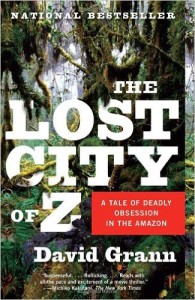
The New Yorker writer David Grann is the latest in a long line of people who have tried to discover exactly what happened to fabled British explorer Percy Fawcett, who was lost in the Amazon in 1925 while searching for a mythical city. No one knows what precisely happened to Fawcett nor whether the lost city of “Z” even exists, but Grann tries to track both down. An interesting tale of discovery, obsession, and scientific development.
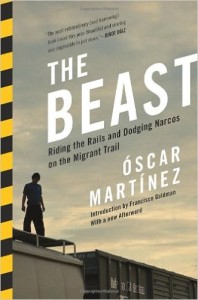
A collection of long-form articles written by Mexican investigative journalist Oscar Martinez, on his journeys with Central American migrants travelling the harrowing train routes through Mexico and into the United States. Martinez shares the personal tales of many migrants, but also interviews police officers, government officials, and various groups and people who help migrants in both the U.S. and Mexico. A great look at the incredible risks people take to try to find a better life for their families, the criminals who try to turn a profit off the misfortune of others, and the systems that make the dangerous journeys necessary in the first place.
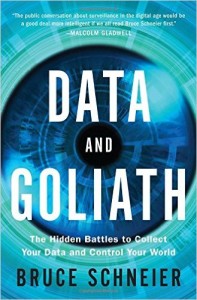
Bruce Schneier has an unusual combination of gifts: he’s thoroughly knowledgeable about the technical details of computer security, but he’s also a gifted communicator who can write about complex concepts in plain English. A sort of Paul Krugman of computer science, if you will. Data and Goliath is about the many ways in which our private lives are being monitored virtually all the time, both by corporations and by governments. Schneier does a fantastic job of explaining why things like privacy matter even if you think you have nothing to hide, and he’s great at drawing out the details of how systems of surveillance are changing our lives, often in ways we don’t realise and probably wouldn’t approve of.
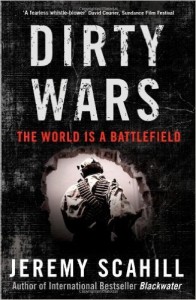
I actually started reading Dirty Wars when it first came out in 2013, but it’s an incredibly lengthy and detailed book, so I only just got around to finishing it this year. Scahill writes about how the war on terror has expanded from the initial mission in Afghanistan to a truly global conflict in which the U.S. recognises virtually no limits on its ability to act. Scahill is, for my money, the best investigative journalist in the English world right now, and this book is supported by the copious amount of on-the-ground research and reporting he’s done in some of the world’s most dangerous areas. Dirty Wars is a great (but thoroughly depressing) examination of the people and tactics that have lead the U.S. into a seemingly unending war against a nebulous foe.
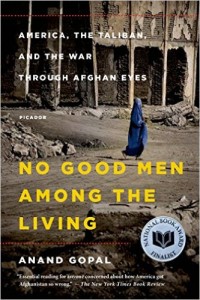
No Good Men Among The Living tells the stories of the Afghanistan war through the eyes of Afghans from a variety of walks of life, including a Taliban commander and a housewife. The book is nearly all first-hand research done by Gopal himself, who lived in Afghanistan fo several years as a reporter. We often hear that people in other parts of the world want the same things we do, and this book really drives that home. The Afghans chronicled here are driven not by ideology, but by a desire to feel that their families are safe and their livelihoods are secure, and they support whoever seems to give them the best chance at those things at any given moment. A great examination of the complexities of war and the difficulty of applying easy labels to any side in a conflict.
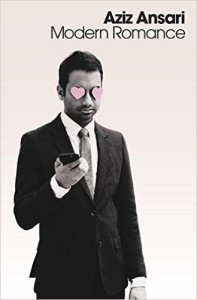
Aziz Ansari teams up with sociologist Eric Klinenberg for a humourous and insightful look at the changing circumstances of relationships over the past century or so. While the book is called “Modern” Romance, much of the text is concerned with how relationships have changed (or stayed the same) since the early 20th century. The book made me laugh a lot (it’s helpful if you’re able to read the text with Ansari’s vocal mannerisms in your head), but it made me think a lot too. It’s an interesting look at how young people are caught between traditional ideas about romance like finding your one true love vs the growing realisation that monogamy may run counter to our nature, especially in a culture with more ways than ever to meet and match-up with interesting people. My one big complaint about Modern Romance is that Ansari and Klinenberg did a lot of interviews and focus groups to learn about people’s relationships, and yet that research is rarely actually discussed in the text.
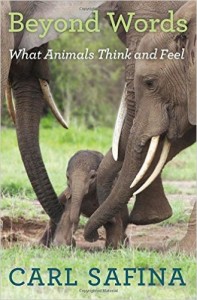
The title and cover image for this book probably make it seem way less interesting than it really is. A fascinating book that argues we should stop trying to figure out if animals have “human” intelligence and instead ask what constitutes elephant intelligence or wolf intelligence or dolphin intelligence. Drawing primarily on his own field research and conversations with people who have dedicated their lives to studying animal populations, Safina argues that we shouldn’t think of animals as a what, but as individuals, as a who. As Safina says, humans and other animals (especially other mammals) evolved from common ancestors and through the same biological processes, so of course other animals feel the same emotions as humans and react to them in logical, understandable ways. Orcas have regional cultures, dolphins give each other names, wolves have politics, elephants have families, and on and on. Very nearly my favourite thing I read this year, right up there with Being Mortal.
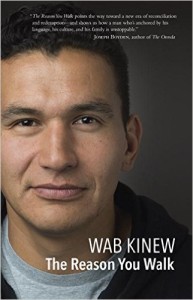
I really dislike biography and autobiography as a genre because I’m generally much more interested in systems than individuals. To that end, The Reason You Walk was a mixed bag. There were parts of the book detailing things like Kinew’s romantic history that I found thoroughly boring. But the parts that dealt with his experiences growing up in Anishinaabe culture were much more interesting. Kinew tells the story of his own life largely through his relationship with his father, an Anishinaabe chief who grew up in a residential school and eventually rose to become one of the most prominent First Nations leaders in Canada. A good look at how racial injustice in the past can have far-reaching consequences in the present.
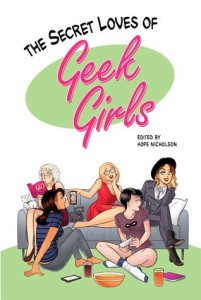
The Secret Loves Of Geek Girls was published through a Kickstarter, which I backed, and is not widely available yet (though there is a publishing deal in place to bring it out next fall). This is an anthology, and as such is definitely a mixed bag. I thought it was going to be about the intersection of fandom and romance, but many of the stories shared here have little to do with geek culture. A lot of what’s shared is fairly normal relationship stuff, like the realisation that the person you’re dating can never live up to the image you’ve created in your head, or the fallout of one partner discovering another has cheated on them. The parts that were most interesting to me were the women who wrote about their experiences with fan fiction, which is something I know very little about and still don’t really understand. I’m not sure whether I’d recommend many of these stories individually, but taken together it’s a neat look at experiences that are well outside of my own.
DID NOT ENJOY
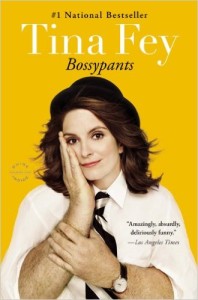
Like I said above, I really dislike autobiographies. I didn’t really like this one. The parts about Fey’s experiences as a woman in show business were usually interesting, but a lot of the books talks about her friendships from childhood and how her parents raised her and other things that just weren’t very interesting to me. Also surprisingly not very funny.
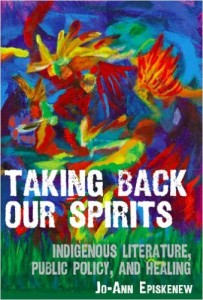
A book about how the politics of oppression mix with art sounds like something that ought to be right up my alley, but I didn’t like this book at all. The writing was painful to get through. It reads like the kinds of terrible academic articles you’re made to read in grad school that could really use a good copy editor, but nobody wanted to be the one to tell the writer how dry and jargon-y the text is. Also the term “spirits” in the title seems to be meant literally, which meant I (an agnostic) was frequently at odds with the basic premise. It’s too bad, because I had pretty high hopes for this one.
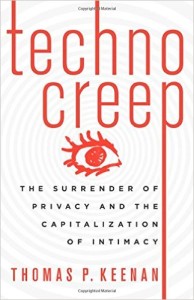
The sub-title The Surrender of Privacy and the Capitalization of Intimacy sounds like the kind of thing I’d be really into, but this just didn’t hold my interest at all. The writing deals with the kinds of basic details that anyone who has any interest in computer security would already know. There’s no real argument about why the things discussed are harmful (as opposed to Data and Goliath, which does a great job of this). Most of the book is also rather vague. Very disappointing.
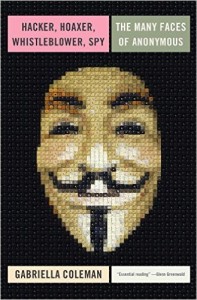
Basically a history of the movement called “Anonymous”, which isn’t actually a movement at all, but is just a name that pretty much any random hacker or group of hackers can take on. As the book kind of hints, but never says outright, there is no such thing as “Anonymous”, which is kind of the point. The writer is oddly sympathetic to the hackers profiled here, despite the fact that they frequently come across as sociopaths rather than the freedom fighters they seem to sometimes believe themselves to be. I couldn’t finish reading this book. It was way too long and rarely all that interesting.

